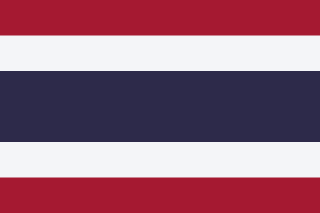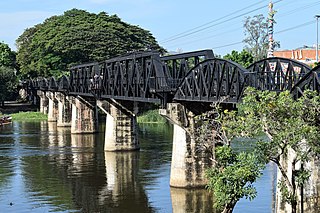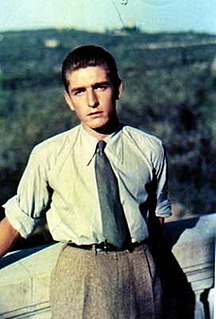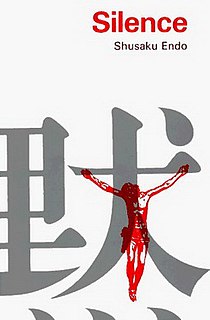
Canonization is the act by which a Christian church declares that a person who has died was a saint, upon which declaration the person is included in the "canon", or list, of recognized saints. Originally, a person was recognized as a saint without any formal process. Later, different processes were developed, such as those used today in the Roman Catholic Church, the Eastern Orthodox Church, Oriental Orthodox Church and the Anglican Communion.

The Bridge on the River Kwai is a 1957 British-American epic war film directed by David Lean and based on the novel Le Pont de la Rivière Kwaï (1952) by Pierre Boulle. The film uses the historical setting of the construction of the Burma Railway in 1942–1943. The cast included William Holden, Jack Hawkins, Alec Guinness, and Sessue Hayakawa.

A martyr is someone who suffers persecution and death for advocating, renouncing, refusing to renounce, or refusing to advocate a belief or cause as demanded by an external party. This refusal to comply with the presented demands results in the punishment or execution of the martyr by the oppressor. Originally applied only to those who suffered for their religious beliefs, the term has come to be used in connection with people killed for a political cause.
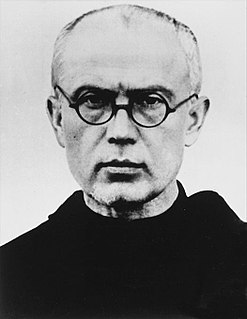
Maximilian Maria Kolbe, a Polish Conventual Franciscan friar, volunteered to die in place of a stranger in the German death camp of Auschwitz, located in German-occupied Poland during World War II. He had been active in promoting the veneration of the Immaculate Virgin Mary, founding and supervising the monastery of Niepokalanów near Warsaw, operating an amateur-radio station (SP3RN), and founding or running several other organizations and publications.
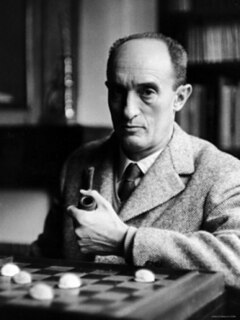
Pierre Boulle was a French novelist best known for two works, The Bridge over the River Kwai (1952) and Planet of the Apes (1963), that were both made into award-winning films.

The Legio duodecima Fulminata, also known as Paterna, Victrix, Antiqua, Certa Constans, and Galliena, was a legion of the Imperial Roman army. It was originally levied by Julius Caesar in 58 BC and which accompanied him during the Gallic Wars until 49 BC. The unit was still guarding the Euphrates River crossing near Melitene at the beginning of the 5th century. The legion's emblem was a thunderbolt. In later centuries it came to be called commonly, but incorrectly, the Legio Fulminatrix, the Thundering Legion.

A Christian martyr is a person who is killed because of their testimony of Jesus. In years of the early church, this often occurred through stoning, crucifixion, burning at the stake or other forms of torture and capital punishment. The word "martyr" comes from the Koine word μάρτυς, mártys, which means "witness" or "testimony."
David Wyman Patten was an early leader in the Latter Day Saint movement and an original member of the Quorum of the Twelve Apostles. He was killed at the Battle of Crooked River and is regarded as a martyr by members of The Church of Jesus Christ of Latter-day Saints. He is referred to twice in the LDS Church's Doctrine and Covenants—once in section 114 and posthumously in section 124.

To End All Wars is a 2001 war film starring Robert Carlyle, Kiefer Sutherland and Sakae Kimura and was directed by David L. Cunningham.
The Novena of Grace is a Catholic devotion addressed to Saint Francis Xavier. It is usually performed from March 4 to March 12 included.

John Bradford (1510–1555) was an English Reformer, prebendary of St. Paul's, and martyr. He was imprisoned in the Tower of London for alleged crimes against Mary Tudor. He was burned at the stake on 1 July 1555.

The Bridge over the River Kwai is a novel by the French novelist Pierre Boulle, published in French in 1952 and English translation by Xan Fielding in 1954. The story is fictional but uses the construction of the Burma Railway, in 1942–1943, as its historical setting, and is partly based on Pierre Boulle's own life experience working in Malaysia rubber plantations and later working for allied forces in Singapore and Indochina during World War II. The novel deals with the plight of World War II British prisoners of war forced by the Imperial Japanese Army to build a bridge for the "Death Railway", so named because of the large number of prisoners and conscripts who died during its construction. The novel won France's Prix Sainte-Beuve in 1952.

Irish Catholic Martyrs were dozens of people who have been sanctified in varying degrees for dying for their Roman Catholic faith between 1537 and 1714 in Ireland. The canonisation of Oliver Plunkett in 1975 brought an awareness of the other men and women who died for the Catholic faith in the 16th and 17th centuries. On 22 September 1992 Pope John Paul II proclaimed a representative group from Ireland as martyrs and beatified them. "Martyr" was originally a Greek word meaning "witness". In the Acts of the Apostles, Peter, speaking to those in Jerusalem at Pentecost, claimed he and all the apostles were "martyrs", that is, witnesses, in this case to Jesus's resurrection. Later the word came to mean a person who followed the example of Christ and gave up their lives rather than deny their faith.
Dusty Miller may refer to:
Through the Valley of the Kwai is the autobiography of a Scottish captain named Ernest Gordon and recounts the experiences of faith and hope of the men held in a Japanese prisoner of war labour camp, building the Burma Railway during the last three and a half years of World War II.
Takashi Nagase was a war criminal and Japanese interpreter during World War II. He was born in 1918/19 in Kurashiki, Okayama, Japan. He learned English from an American Methodist in a college in Tokyo. He was one of the officers in charge of the construction of the "Death Railway" which ran between Thailand and Burma and included the famous bridge over the River Kwai, and is known for the use of forced labour of Allied prisoners of war, though the majority of the labour was incurred by romusha, or local civilians pressed into labour.
Major Joseph Gordon Smith was a soldier who served with the 2nd Battalion of the Argyll and Sutherland Highlanders and the Royal Army Ordnance Corps. Smith served in Malaya during the Second World War and survived being held as a prisoner of war by the Japanese. During his imprisonment, Smith experienced many hardships and was forced to work on the Burma Railway, an experience which was illustrated by the film The Bridge on the River Kwai.

Ernest Warwick was a British author, prisoner of war and survivor of the Burma to Siam death railway.
